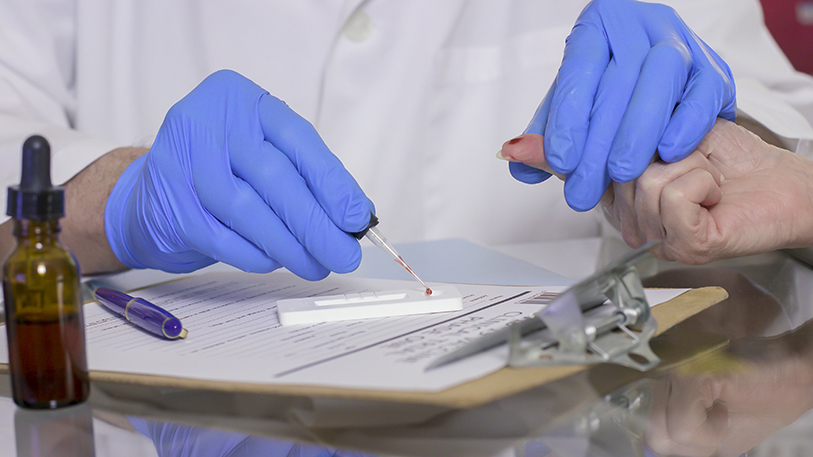As California’s economy continues to reopen, and workplaces start allowing employees to re-enter, the U.S. Equal Employment Opportunity Commission (EEOC) recently updated its COVID-19 guidance, stating that employers may not require employees to take COVID-19 antibody testing to return to the workplace.
The COVID-19 antibody test (also known as a serology test) screens a person’s blood for antibodies, which the body would have made if it fought the COVID-19 infection. The antibody test doesn’t check for the virus itself — it’s only looking to see if a person’s immune system has responded to the infection.
In a newly-added question, the EEOC explains that in light of current Interim Guidelines from the U.S. Centers for Disease Control and Prevention (CDC) that say antibody test results “should not be used to make decisions about returning to the workplace,” the Americans with Disabilities Act (ADA) doesn’t currently allow employers to require antibody testing before permitting employees to re-enter the workplace.
More specifically, question A.7. in the What You Should Know About COVID-19 and the ADA, the Rehabilitation Act, and Other EEO Laws publication states that under the ADA, an antibody test constitutes a medical examination and, at this time, “does not meet the ADA’s ‘job related and consistent with business necessity’ standard for medical examinations or inquiries for current employees.” For this reason, employers requiring antibody testing before allowing their employees to re-enter the workplace is not allowed under the ADA.
The EEOC also notes that an antibody test differs from a viral test, which determines if someone has an active case of COVID-19, and COVID-19 viral tests are permissible under the ADA.
Jessica Mulholland, Managing Editor, CalChamber
For more COVID-19-related federal, state and local resources, visit the CalChamber Coronavirus (COVID-19) webpage and access additional COVID-19-related HRWatchdog blogs.




